EUGENE NADELMAN: A Tale of the 1980s in Verse
Chapter One “The Kiss”
1.
“Eugene, it’s time to wake up, sweetie.
Your blazer’s hanging on the door.
And please,” a motherly entreaty,
“Make sure to comb your hair before
We get to temple.” Morning’s orders
Dispensed, she pulls back from the borders
Of “that disaster zone” (his room),
And trails behind her best perfume.
Eugene, still half-asleep, smells its va-
riety of floral tones. He tries
With limited success to rise
And dress for cousin Steve’s bar mitzvah.
“Just five more minutes, mom,” he bleats,
And sinks back into Star Wars sheets.
2.
His dreams are shattered by a second
Parental cock-a-doodle-do
But this time when his mother’s reckoned
He’s up, he starts his Apple II,
Inserts a much-used bootleg floppy
Of Castle Wolfenstein (a copy
A friend at school had, in return
For Wizardry, agreed to burn),
Heads to the bathroom while it’s booting,
And by the time he’s back the screen
Is radiant with emerald green
On inky black. And now he’s shooting
The German guards with practised ease
And searching their remains for keys.
3.
But wait. My readers may abuse me
For starting things in medias res.
Poetic license won’t excuse me
From setting up our database.
May I present Eugene, who’s fourteen
Years old, our acne-speckled (poor teen!)
Protagonist. Our tale’s debut
Takes place in 1982
When I, for one, if not exactly
A double of our leading guy
Was, like him, bookish, awkward, shy.
To state the point more matter-of-factly,
A judgment harsh but not unheard
Is that our hero is a nerd.
4.
His talents may be less athletic
Compared to other boys. That’s not
Surprising given his genetic
Inheritance. His father got
His PhD at Penn and teaches
Biology. His mother reaches
A different kind of learner as
A music teacher. Hence the jazz
And classical he’s grown up hearing,
And also something of a curse:
His name. I guess it could be worse
Than having to endure the jeering
Of philistines who fail to see
The nod to maestro Ormandy.
5.
And yet he owes his very being
To the conductor. It was at
A concert that his father, seeing
The girl with catseye frames who sat
Behind him, felt an intuition
And spoke to her at intermission.
“I’m Stanley.” “I’m Patricia.” Soon
A courtship, wedding, honeymoon,
A daughter, son, miscarriage, tenure–
A life. So runs the human score
The Cosmic Maestro has in store
For us. Some highs and lows, and then you’re
At the coda… Oh, but forgive
Me: let’s resume our narrative.
6.
He feels a hand upon his shoulder
“Eugene,” his father says, “get dressed
And have some cereal.” His older
Sister now seems to have the best
Of it. Her high school grades have garnered
A merit scholarship at Barnard,
And freshman (sorry: -person) year
Excuses her. She won’t appear
In chapter one, or at this function,
Instead remaining up at school.
Eugene, though, to parental rule
Accountable, hears dad’s injunction
And, not the sort for teenage strife,
He dresses, eats a bowl of Life.
7.
Eugene emerges from the condo.
His dad’s impatient at the wheel,
His mother hums a Mozart rondo.
With all three in the Oldsmobile
It chuffs out through the sleepy city
Which at this hour appears less gritty,
The autumn sunlight from above
(Or maybe that fraternal love
I’ve always heard about) downstreaming
To butter rows of sleeping cars
And shuttered storefronts, darkened bars,
And sidewalks with their homeless dreaming
Of softer beds and eiderdown
Instead of brick in Philly town.
8.
O Philadelphia! Childhood’s cradle!
O city of my long lost youth!
O streets where like young Nadel-
man I sought an e’er elusive truth,
And still so many nights, in dreams that
Cause me to wake in tears, it seems that
I wander in some urgent hope
Past stoops like giant bars of soap
And down the dim colonial alleys
Where rivulets of cobblestones
Flow gently over sleeping bones
Of patriots and slaves, these sallies
Attended always by a knell,
The tolling of that broken bell.
9.
At City Hall the car turns, making
Its way below the grimy bronze
Of William Penn up top, then taking
The Parkway toward the Parthenon’s
Fair copy. The Art Museum, ducal
And grand, stands guard above the Schuylkill
Whose patient waters bear the strokes
Of college crew. In front, his folks
Discuss some ancient family drama.
Eugene, in back, looks at the view
Which changes as they travel through
North Philly. Soon the panorama
Of urban blight gives way to sprawl
Of garden home and shopping mall.
10.
The suburbs: foreign territory
For city kids like this one, whose
First homestead was a thirty-story
Apartment building, then a mews
Of brownstone flats. There’s something creepy
To him about these fat and sleepy
Abodes that are, like much else here,
Detached. He also finds it queer
To see the streets without a pavement;
The lawns extend right to the curbs
Suggesting somehow that the ‘burbs
If not the cause of all depravement
Have notwithstanding got it wrong,
Like in that “Subdivisions” song.
11.
The temple is a mausoleum
Constructed out of stone and glass,
A kind of history museum
Of Jews who reached the middle-class.
It’s one of many edifices
With parking lots and benefices
For clergy paid to sermonize
And tell the people when to rise
And when to sit. The “Neveh Shaloms,”
In Hebrew words no one can read
(With English prayerbooks there’s no need),
Are chiselled over marble columns
Through which few people come to pray
Save for occasions like today.
12.
In general the congregation
Shows up at Rosh Hashana, Yom
Kippur, a family celebration,
But not much more, while in the home
Their rituals comprise December
Menorahs and, when they remember,
A seder in the spring. They might
Include some faded Yiddishkeyt
As well: the lox and bagels, curses
And kibitzing. Yet though their shul
Stands mostly empty it’s a rule
That once a year they open purses
And diligently pay their dues.
For, after all, are they not Jews?
13.
But now the foyer’s like a kettle
Aboil. Behold, the gathered tribes
Of Nadelmans, a mini-shtetl,
Pinch cheeks, slap backs, trade jokes and gibes,
Embrace, shed tears and kinneh horres.
From Zeyde Max to cousin Laura’s
New baby makes a century
Of growth rings on the family tree
That spreads its boughs here. Quite a blessing,
When one considers what was lost
Forever in the Holocaust.
Eugene, to finalize his dressing
Selects a rayon kippah from
The box and joins the family scrum.
14.
“Well, look at you! A handsome mister!”
His grandma Molly stamps his cheek
With lipstick pink. “And where’s your sister?
The fancy college girl can’t sneak
Away from school to see her bubby?
You know,” she tells him in a clubby
Whisper, “your father is the same.
It’s almost three weeks since he came
To visit. Nu, that’s fine, a clever
Boy, my Stanley. And who has time
To visit an old lady? I’m
Just saying I won’t live forever.”
She pats her heart, “I’ve got this pain
Right here. But why should I complain?”
15.
And yet she does complain, of course. All
The same, here is a woman who
Was born in poverty near Warsaw.
At ten, pogromists broke into
Her home and killed her father, olev
Hashalom. Following the pall of
Her mother’s death from cholera,
She landed in America
At seventeen. Her husband Murray
Died young; she had to raise her sons
Alone. So if her griping runs
Until they reach the sanctuary,
Eugene is ready to admit
She’s earned the right to kvetch a bit.
16.
His Uncle Sol’s already snoring,
Eugene slides past him on the pew.
Must services be quite so boring?
They haven’t even gotten to
The Torah portion yet. The droning
Of Cantor Borowitz intoning
A Hebrew dirge, inscrutable
To those assembled in the shul,
Is interspersed with somber pleadings
From Rabbi Kaplan in his gown
To turn the page, stand up, sit down,
And join him in responsive readings.
With organ playing all the while,
It’s Protestant but with less style.
17.
When Steve at last ascends the bima
The scroll is spread below his face.
He stares, as at some foreign schema,
In silent panic. He’s lost his place!
But fortunately there’s rabbinic
Support. As at a cancer clinic,
The clergy quickly gather round,
Confer until the spot is found.
Now Steve, relieved, proceeds to chant or,
In truth, to squeak. His speech is brief:
A lukewarm statement of belief,
Then thanks-yous to the rabbi, cantor,
His parents, and the gathered clan.
His sister too. Now he’s a man!
18.
The ritual initiation
Successfully concluded, all
Anticipate the buffet station.
They move into the social hall.
Eugene, who’s quickly disencumbered
Of yarmulke, finds tables numbered
And learns that he’ll be eating lunch
Not with his parents but a bunch
Of teens. Relations, friends of cousin
Steve, class-mates from his junior high,
And some he can’t identify
All take their seats. Yet of the dozen
Who sit at number 28
There’s only one he’d contemplate.
19.
In contrast to the teased-up tresses
Of other girls, her hair cascades
Down to her shoulders. And, though dresses
Around the table come in shades
Of bright pastels and radioactive
Hues, hers, subdued, is more attractive.
Her brown eyes, sweet as gingerbread,
Light up at something someone said.
Eugene, though, deaf to all the chatter
Around him, only registers
The fact that in his bosom stirs
An organ going pitter-patter.
The room around him seems to swim.
If only she would look at him.
20.
Now here’s a geometric riddle:
We know a circle’s greatest span
Is one that intersects the middle.
Yet which of Euclid’s theories can
Explain the line of sight that passes
From just behind Eugene’s eye-glasses
Toward someone sitting opposite
But then confronts an infinite
Expanse? Can it be some resistance
Caused by the floral centerpiece
That causes this absurd increase
Of normal diametric distance?
What’s certain is that, though he tries,
Eugene can’t catch those lovely eyes.
21.
And now we hear the hired musicians
Embark with keening clarinet
Upon a hora. The tradition’s
Endearing to the guests who get
Up, clasping hands, and form a spinning
Ring. In the center Steve is grinning.
They carry him around the room
Perched on a chair, a nervous groom
Who holds on for dear life. The sweaty
Carousers catch their breath. The band
Now changes up the tunes as planned:
A jazzy medley of spaghetti
Swing, reaching its fortissimo
With Louis Prima’s “Gigolo.”
22.
Alas, Eugene ain’t got nobody.
He sighs and fidgets in his chair,
Picks at his salad and the ruddy
Filet of beef, tries not to stare.
The band continues with some Lesley
Gore, Bobby Darin, Elvis Presley,
The music of a bygone age,
Until they stop and leave the stage.
A DJ trailing phono cables
With record albums in a bin
Selects a pair and starts to spin
The first on one of two turntables:
A throbbing pulse, the serpentine
Melodic line of “Billie Jean.”
23.
As soon as they hear Michael Jackson
The younger set invades the floor.
And, much as if an air-raid klaxon
Announced the outbreak of some war,
Their elders plug their ears and beat it.
The Thriller album, not exceeded
In sales, announced the flowering
Of Michael Jackson’s reign as King
Of Pop, indeed a kind of savior.
Today one has a different take
On him—surmising, in the wake
Of all the scandals, odd behavior,
And violated protocols,
The girl, at least, was likely Paul’s.
24.
As “Billie Jean” gives way to “Rio,”
The new hit by Duran Duran,
Observe these teens, their youthful brio,
Enthusiasm, and elan;
Their music, clothes, vocabulary,
Defining the contemporary.
Rod Stewart recently implied
That time itself is on their side.
And yet this festive, endocrinal
Display, had I a Polaroid
To show today, would not avoid
Appearing obsolete as vinyl
And dated as the dial tone
When picking up a land-line phone.
25.
Excuse the note of melancholy.
I’m feeling like a dinosaur.
It seems impossible, but Molly
From Breakfast Club is fifty-four
This year. And though I reminisce in
These lines and mine the past, I listen
To “Don’t You (Forget About Me)”
Not on a WalkMan but mp3.
My children, seeing me look wistful,
My earbuds in, emitting sighs,
Just shake their heads and roll their eyes.
O grab the present by the fistful,
My babes, you know not how you’re blessed!
Well, let’s resume our poem’s quest.
26.
Our hero sees the chance he’s waited
For, quickly gathers up his nerve
And, though he’s uncoordinated,
He sets out. Careful to observe
The dance moves of his fellow gallants
He manages to keep his balance.
Alas, the object of his love
Is dancing in the middle of
A group of girls in herd formation.
They hop and twirl to “Centerfold.”
Eugene, however, isn’t bold
Enough to enter. In frustration,
He stands outside and sways in awe
Like Kafka’s man before the Law.
27.
A slow song indicates the dance is
About to end. Embarrassed teens,
Prefering not to take their chances,
Escape, forestalling any scenes.
The plaintive piano chords of Journey
Intensify our hero’s yearny
Anticipation and despair,
His open arms enfolding air.
He looks around. The guests are leaving
The social hall and, as he feared,
His brown-eyed angel’s disappeared.
He tells himself, don’t stop believing!
But sure enough she’s really gone.
He hears his parents: “Gene, come on.”
28.
His dream, ephemeral, has faded
And so he tries to leave the hall
Before he can be ambuscaded
By congregants who’ll say how tall
He’s grown. Outside, he glumly follows
His parents to their car. Apollo’s
Is cruising through the afternoon
While Dian’s ride, a daytime moon,
Has stalled in heaven’s lot. Terrestrial
Conveyances are driving to
The post-bar mitzvah barbecue
At Uncle Morty’s huge, campestral
Home. Wishing he were off the hook,
Eugene would rather read a book.
29.
The maze of cars proceeds to thicken
In Uncle Morty’s cul-de-sac.
The scent of barbecuing chicken
Is wafting through the air. In back
The younger children, gaily shrieking,
Tear off to do their hide-and-seeking
Among the trees. A tent of tulle
Stands by the heated swimming pool.
And there, with silver hair, rosaceous
Nose, Morty Nadel (yes, the name
Was changed) of Nadel Luggage fame
Attends to guests with all the gracious
Expansiveness and kinglihood
Of sons of immigrants made good.
30.
And by his side, Aunt Janet urges
The guests to eat some more. But who’d
Go hungry at these Nadel splurges?
Eugene has piled his plate with food
From hamburgers to watermelon
When Morty’s daughter, cousin Ellen,
Comes by and takes a seat to shmooze.
“Hi, Genie! Tell me all the news
About your sister, Karen.” Having
Looked up to Ellen since he was
A tot, Eugene, delighted, does
What she commands, her presence salving.
She’s lovely, 21, and tanned
From two years in the holy land.
31.
Her sojourn there’s a source of tension
Between her and her parents who
Are panicked at her new intention.
She’s grudgingly returning to
Cornell to finish up her college
Degree then, though they won’t acknowledge
The next part, plans to emigrate,
Returning to the Jewish state.
Meshugeneh! they say. This meydl
Should trade her U.S. birthright for
A mess of middle eastern war?
Yet though they can’t read round a dreidl
Their daughter’s managing the feat
Of learning how to speak ivrit.
32.
Eugene asks, “Is it true you want to
Leave home and live in Israel?”
His choice of phrasing’s an affront to
The way she looks at things. “To tell
The truth, all this”—she shrugs, denoting
The house, the pool, her parents’ doting,
The life of ease spread out before
Her which resembles more and more
A minor footnote made to fit in
Some diasporic history,
“No longer feels like home to me.”
It seems the Jewish bug has bitten
Her. “All I want to do is leave.
“My home,” she says, “is Tel Aviv.
33.
For those of you who may be curious
She does in fact make aliyah
And though her mom and dad are furious
At her rebuff of their bourgeois
Designs and sometimes want to choke her
She finally manages to broker
A fragile peace accord. She ends
Her army stint with many friends
And though she finds adjustment rocky
At times, she’s able to persist,
Becomes a psychotherapist,
Is courted by a sweet Iraqi
Jew, marries, and they bring up four
Kids: Gal, Yair, Tamar, and Mor.
34.
The last name, as you’ve guessed, pays honor
To one who’d, sadly, never get
To see his grandchild in Raanana.
By long-established etiquette
The name recalls departed Morty
Who like his forebears wandered forty
Years, this time in a blemishless
If dull suburban wilderness,
While far across the mighty water,
Where patriarchs once said their prayers
And now the light rail system bears
Hi-tech commuters, Ellen, daughter
Of Morty Nadel, luggage king,
At last has unpacked everything.
35.
But all that’s yet to come. At present
His cousin stands and with a smile
Resumes her rounds. The air is pleasant.
Eugene, reflective, sits awhile
And thinks about their conversation.
So Ellen knows her destination.
And his? Not Israel, of course,
But what desire might one day force
Eugene to break with family, roaming
Across the globe to find his goal?
The sun descends, its gloriole
Ignites the edges of the gloaming.
Eugene, in search of nearer shores
Gets up and takes himself indoors.
36.
Inside, the living room is empty
Although the television’s loud.
Eugene, reclusive, finds it tempting
To hide out from the madding crowd.
He leans back on the leather sofa,
Decides to stay awhile and loaf. A
Young woman on the TV set
Presents a show he’s not seen yet
Because his parents don’t have cable.
Behold, the latest pop songs mixed
With video. Eugene’s transfixed,
Excited that he’s finally able
To sample the adrenaline
Of MTV with Martha Quinn.
37.
A gymnast tumbles in slow motion
While TV monitors present
The band. They sing about devotion
That turned to disillusionment.
Enthralled, Eugene becomes acquainted
With dramas in which love is tainted,
Each video a brimming font
Of urgent questions: Don’t you want
Me? Who can it be now? And dancers
That prowl in lyotards or jeans
Through streets obscured by fog machines
Seem ready to reveal the answers–
When Steve bursts in excitedly:
“Eugene, you’ve got to come with me!”
38.
He follows Steve down to a basement
Much like the one that Philip Roth
Described, allowing for replacement
Of ping-pong with the verdant cloth
Of billiard table. Are they playing
A game of pool? But someone’s saying
“Okay, with him it’s even now.”
Let’s start.” He sees it’s—holy cow—
A circle of teenagers seated
There on the shag rug by the bar,
That lovely brown-eyed morning star
Among them! Feeling overheated,
Eugene notes Steve has closed the door
And placed a bottle on the floor.
39.
Some teasing, boasting, nervous titters,
As hesitating teens confer.
The bottle in the center glitters.
At last a girl named Jennifer
Initiates the game. She seizes
The bottle, spins it and–oh, Jesus—
It points straight at Eugene. Bright red,
He holds his breath and leans his head
Into a kiss, her mouth annointing
His upper lip (they don’t quite sync)
With spittle. Quickly, they unlink.
He finds it oddly disappointing,
Although at least he’s finally free
Of oscular virginity.
40.
Eugene’s turn now. In silence, prayerful,
He gives the bottle quite a spin
But, though he’s trying to be careful,
It wobbles, bouncing off his shin,
And points to cousin Steve. “I’m sorry,”
Steve mocks, “You’re not my type.” His quarry
Eludes him once again; though he
Had aimed the bottle expertly
It winds up at a girl with braces.
Eugene, though he conceals it, grieves
As every boy but him receives
The kiss he wants. Though her grimaces
Suggest brown-eyes is unimpressed
Each one’s a stab-wound in his breast.
41.
It’s said that following the trial
Of Socrates a cup brought death,
While an apothecary’s phial
Held Romeo’s release from breath.
A beaker was to blame for Tristan’s
Untimely rush toward nonexistence.
And yet was ever vessel cursed
As this which will not quench the thirst
Of poor Eugene for just one pressing
Of lips? Just as a compass yields
No answer in electric fields,
The needle aimlessly digressing
So that the hapless setter-forth
Can never find magnetic north.
42.
Eugene, however, goes on spinning
Like one addicted to roulette
Who, though with little chance of winning,
Insists on placing one more bet,
Enduring girls who kiss like fishes
And pass on germs like petri dishes.
For what’s a little Epstein-Barr
Compared with this particular
Reward? And yet of all he’s catching
A break is nowhere to be found.
When next he spins the bottle round
He hears the basement door unlatching.
A call descends to those below:
“Eugene!” he hears. “It’s time to go!”
43.
“Goodbye!” the other kids call after
Him as he shuffles to the stairs,
Pursued as well by whispers, laughter,
And, though it takes him unawares,
A footfall. Evidently cheated
By fate, Eugene feels too defeated
To pay attention overmuch
Until he feels a gentle touch.
He turns and finds those brown eyes gazing
At him. She says: “Didn’t you see?
Your last spin pointed right at me.”
(And here it really gets amazing.)
“Before you go, I owe you this,”
Bestowing on his lips a kiss.
44.
He stands there with an idiotic
Expression plastered on his mug
As if he’s under some hypnotic
Effect or psychotropic drug.
“Uh, thanks,” he mumbles, “See you later?”
A smile’s her only indicator
Before rejoining the platoon.
Eugene ascends like a balloon
Or like a cork atop the crest of
A sultry Caribbean swell,
And, upstairs, bids his hosts farewell.
As typical of Jews at festive
Occasions, parting takes a while
But cannot dim his dreamy smile.
45.
While driving home, his parents process
The latest family news: crossed swords,
Financial albatrosses,
Divorce, engagement, college boards.
Eugene contemplatively gazes
At nighttime’s luminescent mazes:
The golden lights of Boathouse Row
Reflected in the Schuykyll’s flow,
And then the skyline. Shining from it,
The giant tetragrammaton
Inscribed in ruby font upon
The PSFS Building’s summit
Is like a beacon calling out
To souls that skirt the shoals of doubt.
46.
Or like a mene mene tekel
Upharsin for some Belshazar
Who feasts beneath the lights that speckle
The back seat of the family car.
Eugene is trying to decipher
The true significance of life, or
At least the day’s events. It seems
To him the meaning of his dreams,
The crown that he is meant to try on,
Is love. The kiss that he received
Has with some alchemy conceived
A goal equivalent to Zion
For cousin Ellen. Gratefully,
He ponders this epiphany.
47.
And so when he has finished playing
A couple rounds of Wolfenstein,
And grunted at his parents saying
Good night, and heard the distant keen
Of sirens lend a moment’s tragic
Inflection to this night of magic,
And gotten into sleeping clothes,
And brushed his teeth, and daubed his nose
With Clearasil, and read some pages
Of Sailor on the Seas of Fate,
And set his clock for half past eight,
And dimmed the light, he asks love’s aegis
For him and—oh, but what a shame!
He never even learned her name.
48.
Let that, dear reader, be the ending,
Unless you’d like to hear some more.
I don’t see any point pretending
That some won’t find this tale a bore.
I’m well aware that pop nostalgia
Can activate acute neuralgia
In many. Even those who warm
To 80s tunes may find the form
I’ve used off-putting. In all candor,
I’ve turned to it in part because
It helps to camouflage my flaws,
Though others have used Alexander
Sergeivich Pushkin’s elegant
Design with more accomplishment.
49.
For instance, one who used Onegin
Is Vikram Seth; his Golden Gate
Like mine is set when Ronald Reagan
Was president. Though one should state
That Seth relaxes Pushkin’s rhythm.
He mainly shares the rhyme scheme with him,
The count of syllables, but not
The regular iambic trot.
My favorite, and what made me try a
Rendition of the Pushkin poem,
In fact’s a Hebrew book: Makom
Aher v’ir zarah by Maya
Arad. That novel sold so well
It topped the charts in Israel.
50.
In any case, I’m very grateful
To you for having come this far
In what Eugene sees as a fateful
Encounter with his avatar
Of love. What’s next? I have some notions:
A duel of sorts, high-pitched emotions,
And 80s references—that, more
Or less is what I think’s in store
For us in chapter two. So folk who
Continue with our tale, expect
A stirring narrative bedecked
With pleasant bits of verse sudoku,
A promise that I’ll try to keep.
And now, Eugene can get some sleep.
Suggested Reading
Missing Menachem
When Menachem Begin led the Likud to victory in 1977, Yitzhak Ben-Aharon spoke for many in the Israeli political establishment when he said that “if this is the will of the people, we have to replace the people.” Begin’s image has evolved, but he remains a contested figure.
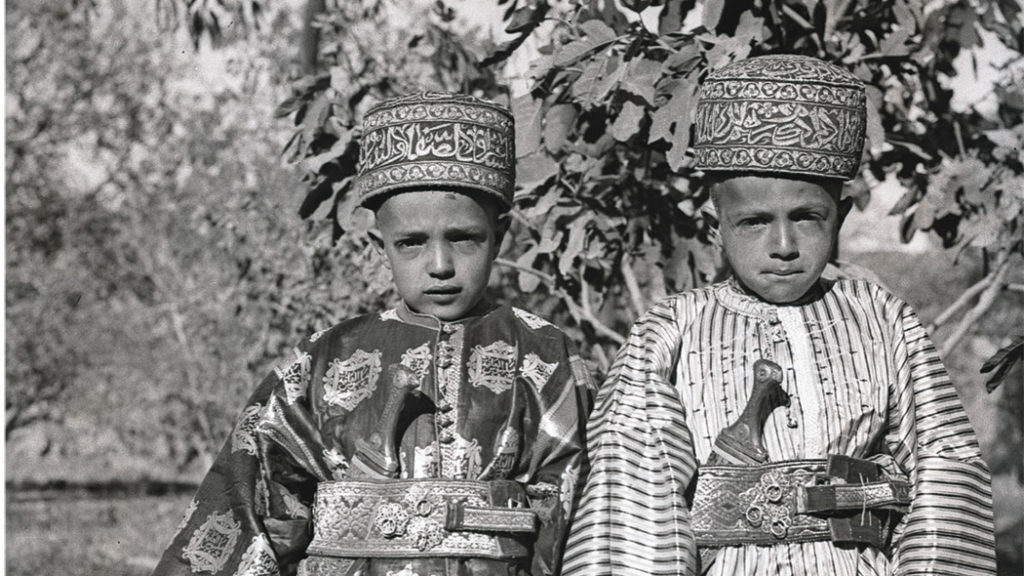
Available Light: Pictures from Yemen
Yihye Haybi, a Jewish medical assistant to an Italian doctor in Sana'a, found himself in possession of a camera. Self-taught and working under difficult circumstances, he captured the waning days of Yemen's ancient Jewish community.
Poems Like Mountains
“I was a year old,” Rivka Miriam says, “and my father would hold me in his arms and throw me up and down and I laughed and laughed and laughed. Each time he threw me up he’d yell in Yiddish ‘Rivkela Rivkela where’s Savta?’ ‘Killed.’ ‘Rivkela Rivkela where’s Miriam?’ ‘Killed.’ ‘Rivkela Rivkela where’s Chaim?’ ‘Killed.’ He’d say all the names…
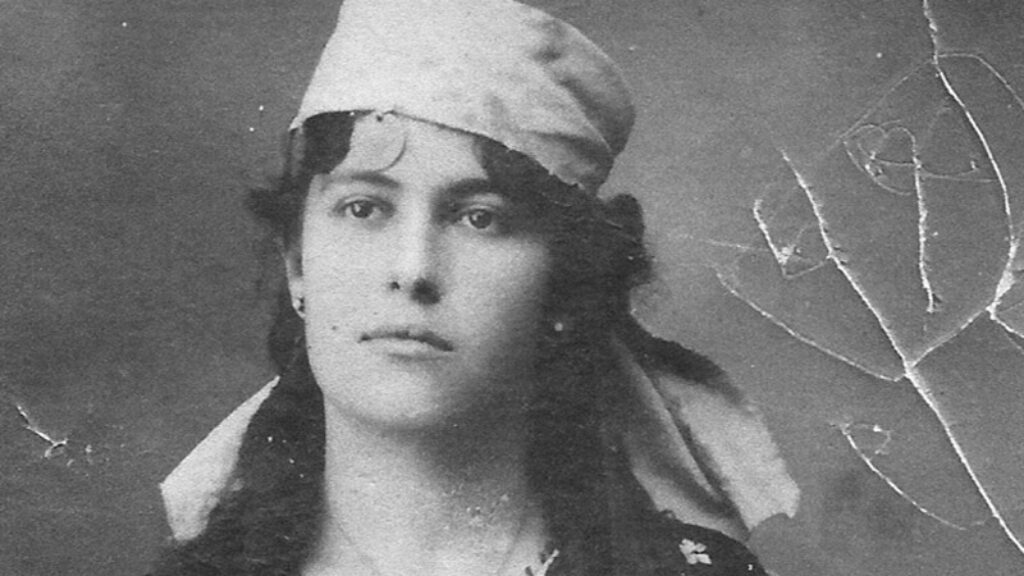
Coming of Age in the Sephardi Diaspora
Elizabeth Graver’s new novel shines a light on the Sephardi experience.
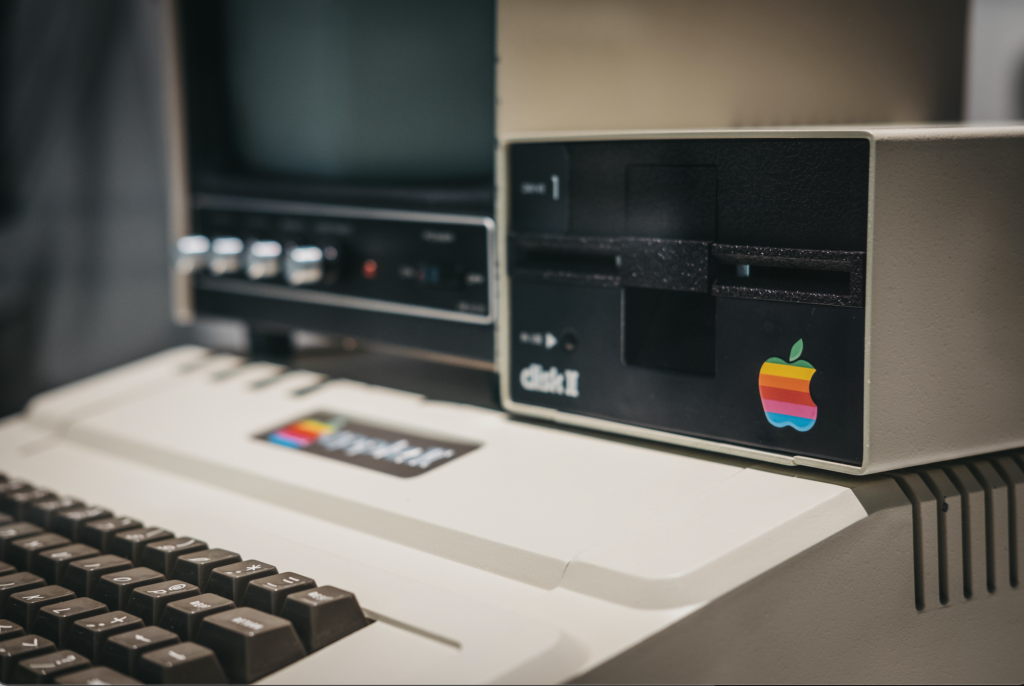
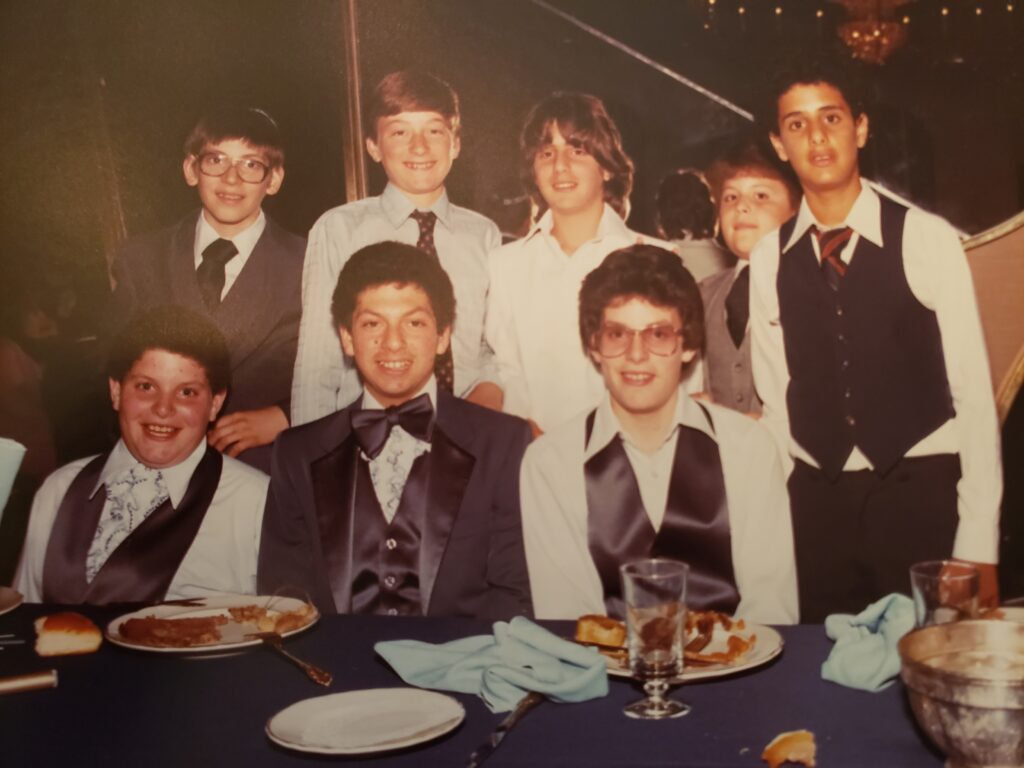
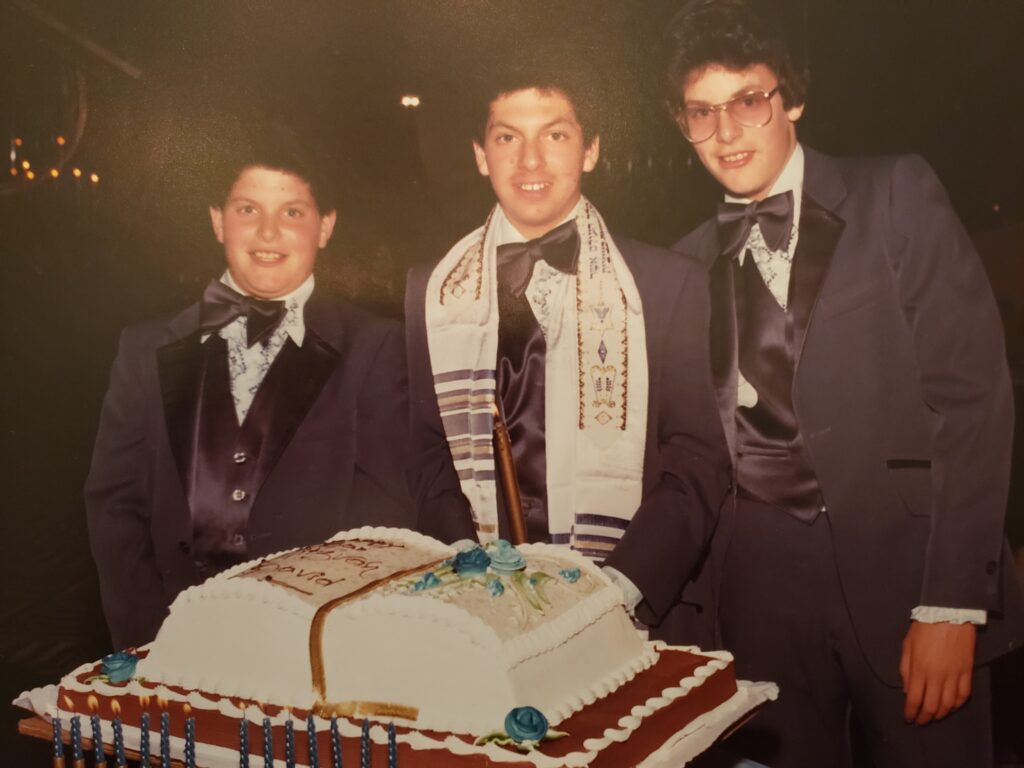
Comments
You must log in to comment Log In